Fleas and ticks are more than just a nuisance; they can cause serious health problems for your beloved cats and dogs. From allergic reactions and skin infections to transmitting diseases like Lyme disease, protecting your pets from these parasites is crucial. This guide will help you navigate the world of flea and tick treatments, providing our top recommendations to keep your furry friends happy and healthy.
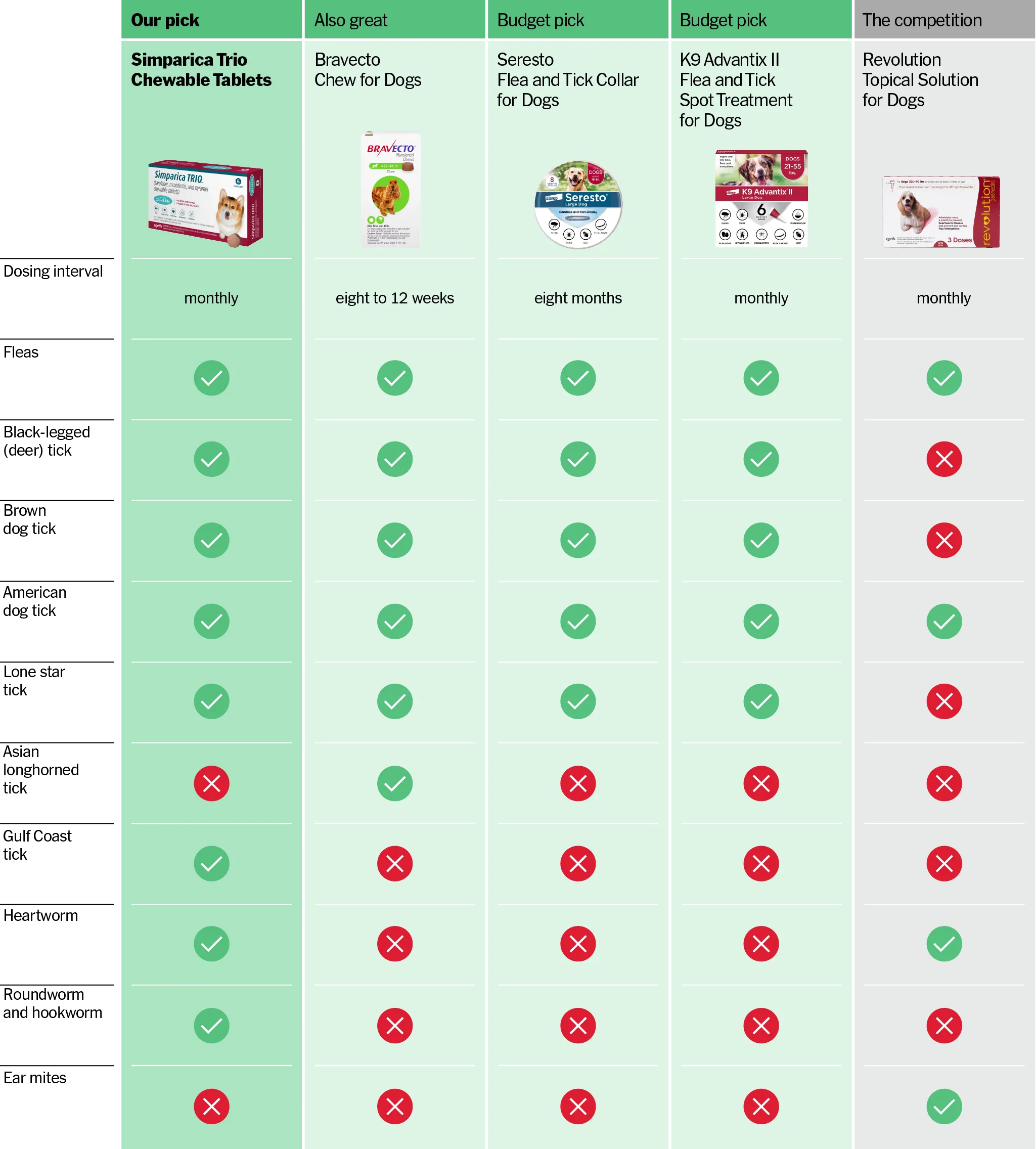 A chart comparing our treatment picks for dogs and the pests they help fight.
A chart comparing our treatment picks for dogs and the pests they help fight.
Understanding the different types of flea and tick medications available is essential to making the right choice for your pet. These include oral medications, topical treatments, collars, and even shampoos. Each type has its own advantages and disadvantages, so it’s important to consider your pet’s lifestyle, health, and any specific needs they may have.
Our Top Pick for Dogs: Simparica Trio Chewable Tablets
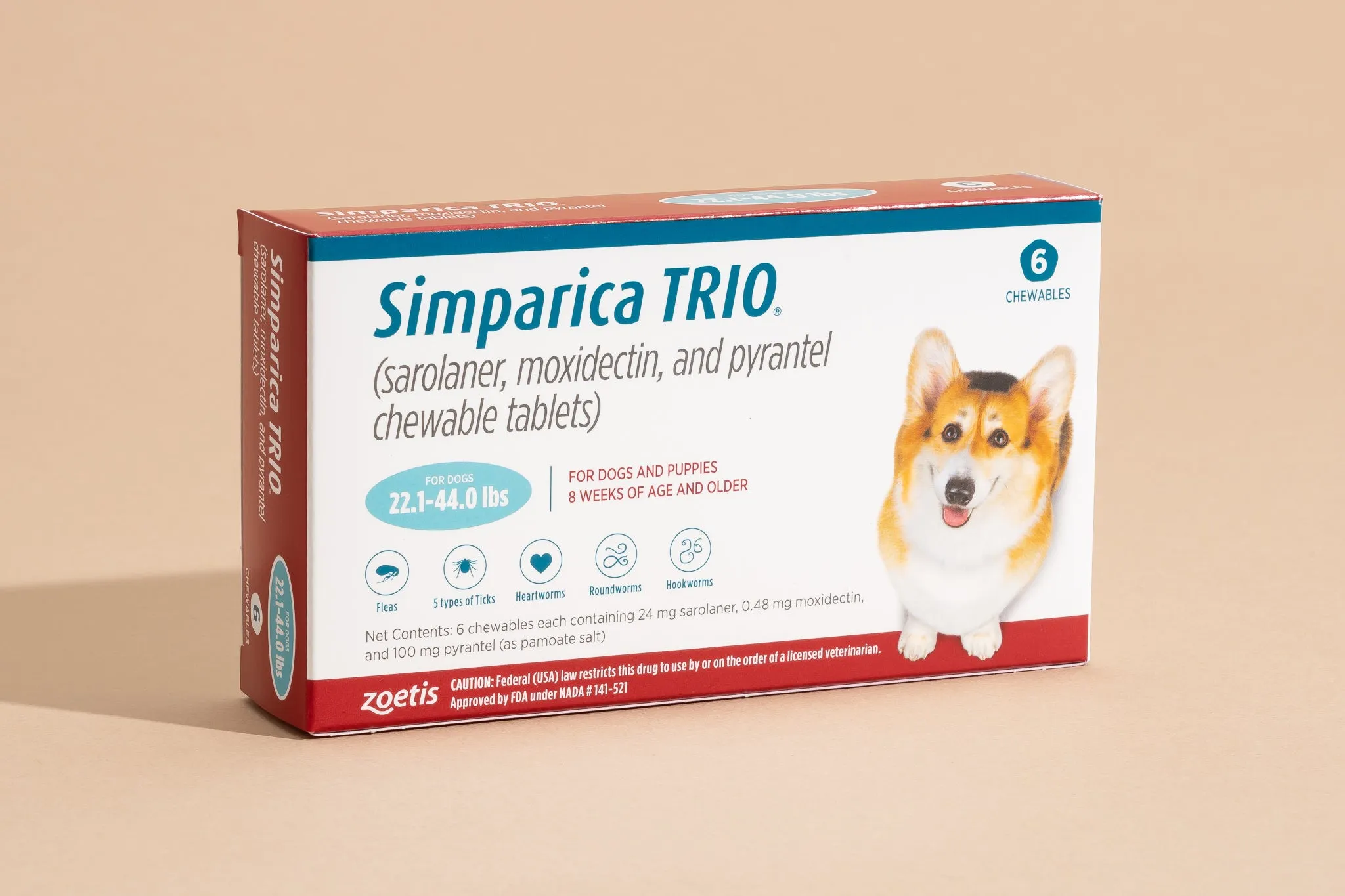 A box of Simparica Trio Chewable Tablet for Dogs.
A box of Simparica Trio Chewable Tablet for Dogs.
For comprehensive protection against a wide range of parasites, we recommend Simparica Trio Chewable Tablets for Dogs. This monthly, prescription-only chewable tablet offers broad-spectrum protection against fleas, five types of ticks, hookworm, roundworm, and also prevents heartworm disease.
Simparica Trio Chewable Tablets for Dogs stands out because it uses three active ingredients to combat parasites effectively. Sarolaner, an isoxazoline compound, eliminates fleas and ticks residing on your dog. Moxidectin protects against heartworm, and pyrantel targets adult and immature stages of hookworms and roundworms.
Simparica Trio is effective against the Gulf Coast tick, which is expanding its range geographically. These tablets can be given with or without food and are available in various dosages based on your dog’s weight, starting from 2.8 pounds.
Kills or repels:
- Fleas
- Black-legged tick (deer tick)
- Brown dog tick
- American dog tick
- Lone star tick
- Gulf Coast tick
- Heartworm
- Hookworm
- Roundworm
Price per year: about $350 to $405 (depending on dosage)
Best Long-Lasting Flea and Tick Treatment for Dogs: Bravecto Chew
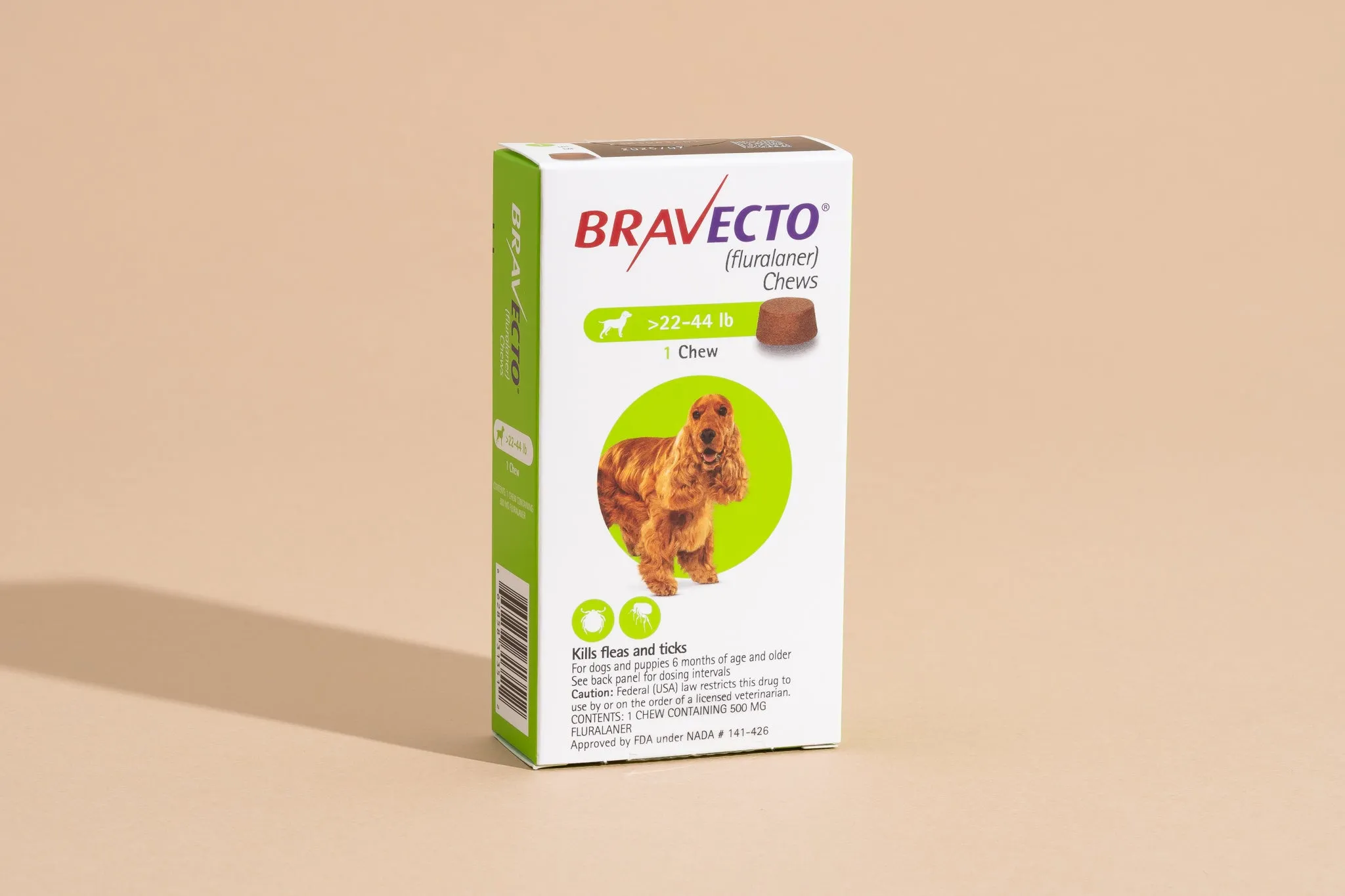 A box of Bravecto Chew for Dogs.
A box of Bravecto Chew for Dogs.
If you’re looking for a convenient and long-lasting flea and tick solution, Bravecto Chew for Dogs is a great option. One chew provides protection for up to 12 weeks, making it a less frequent administration compared to other oral treatments.
The active ingredient in Bravecto is fluralaner, an isoxazoline that helps control home flea infestations. Bravecto is also effective against the Asian longhorned tick. However, it’s important to note that Bravecto does not prevent heartworm or treat hookworm and roundworm, so you’ll need a separate product for these internal parasites.
For areas with a high population of the lone star tick, administering Bravecto every eight weeks is recommended for full coverage. Bravecto Chew is available in multiple dosages for dogs weighing between 4.4 to 123 pounds. It should be given with food and comes in a sealed blister pack.
Kills or repels:
- Fleas
- Black-legged tick (deer tick)
- Brown dog tick
- American dog tick
- Lone star tick
- Asian longhorned tick
Price per year: about $330 to $350 (for 12-week administration, depending on dosage)
Budget-Friendly Flea and Tick Collar for Dogs: Seresto Flea and Tick Collar
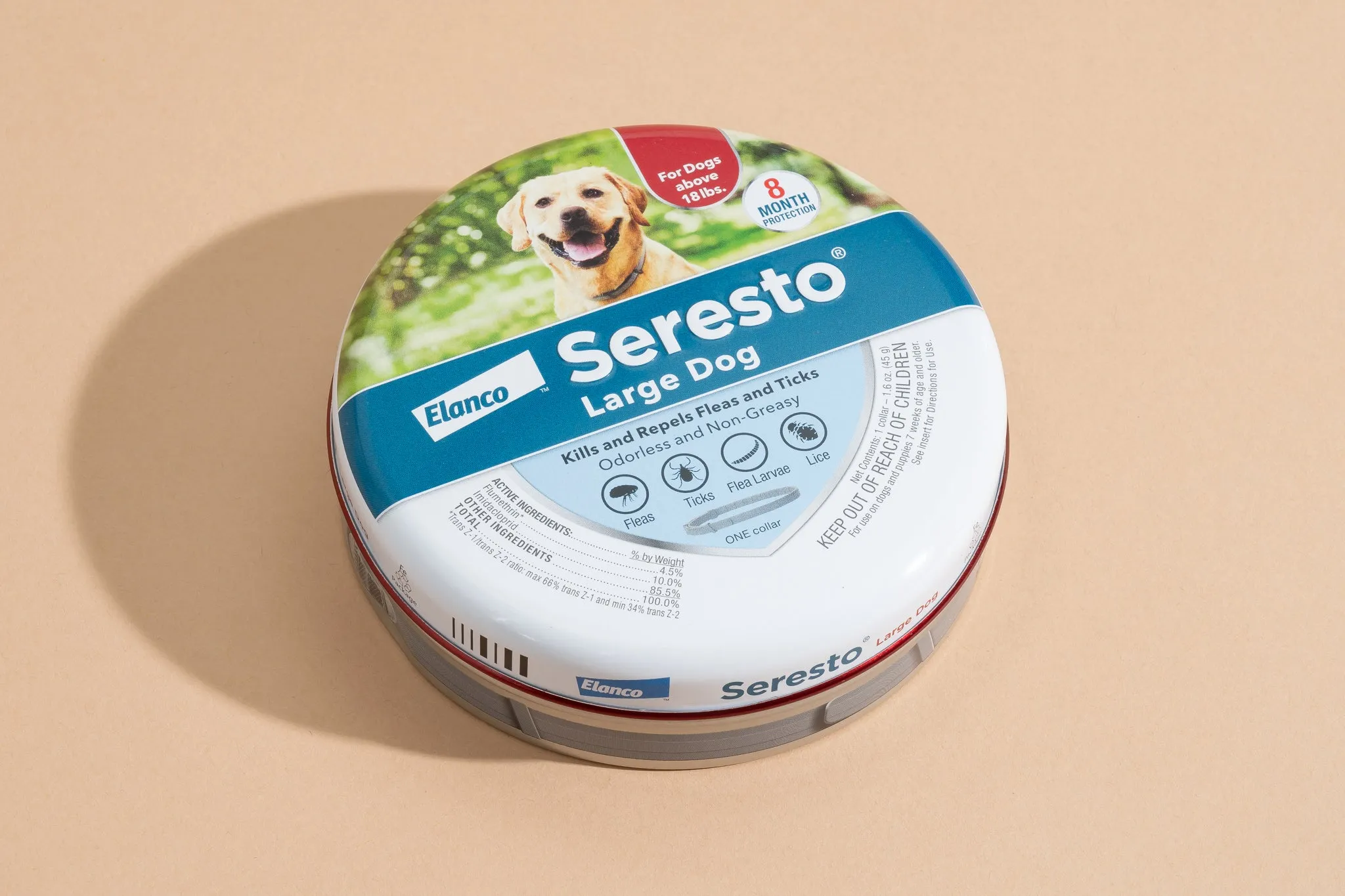 A tin containing a Seresto Flea and Tick Collar for Dogs.
A tin containing a Seresto Flea and Tick Collar for Dogs.
For a more budget-conscious option that provides long-lasting protection, consider the Seresto Flea and Tick Collar for Dogs. This collar offers up to eight months of protection and repels fleas and ticks, meaning they don’t have to bite your dog to be affected by the treatment.
The Seresto collar can reduce the transmission of tick-borne illnesses, and many veterinarians recommend using an isoxazoline as a baseline, along with a repellent collar in tick-heavy areas or during peak tick season. However, like Bravecto, the Seresto collar only addresses external parasites, so you’ll need a separate product for heartworm, hookworm, and roundworm protection. It’s available in two sizes, one for small dogs (up to 18 pounds) and one for large dogs (over 18 pounds).
Kills or repels:
- Fleas
- Black-legged tick (deer tick)
- Brown dog tick
- American dog tick
- Lone star tick
- Chewing lice
- Sarcoptic mange
Price per year: $90
Budget-Friendly Topical Treatment for Dogs: K9 Advantix II Flea and Tick Spot Treatment
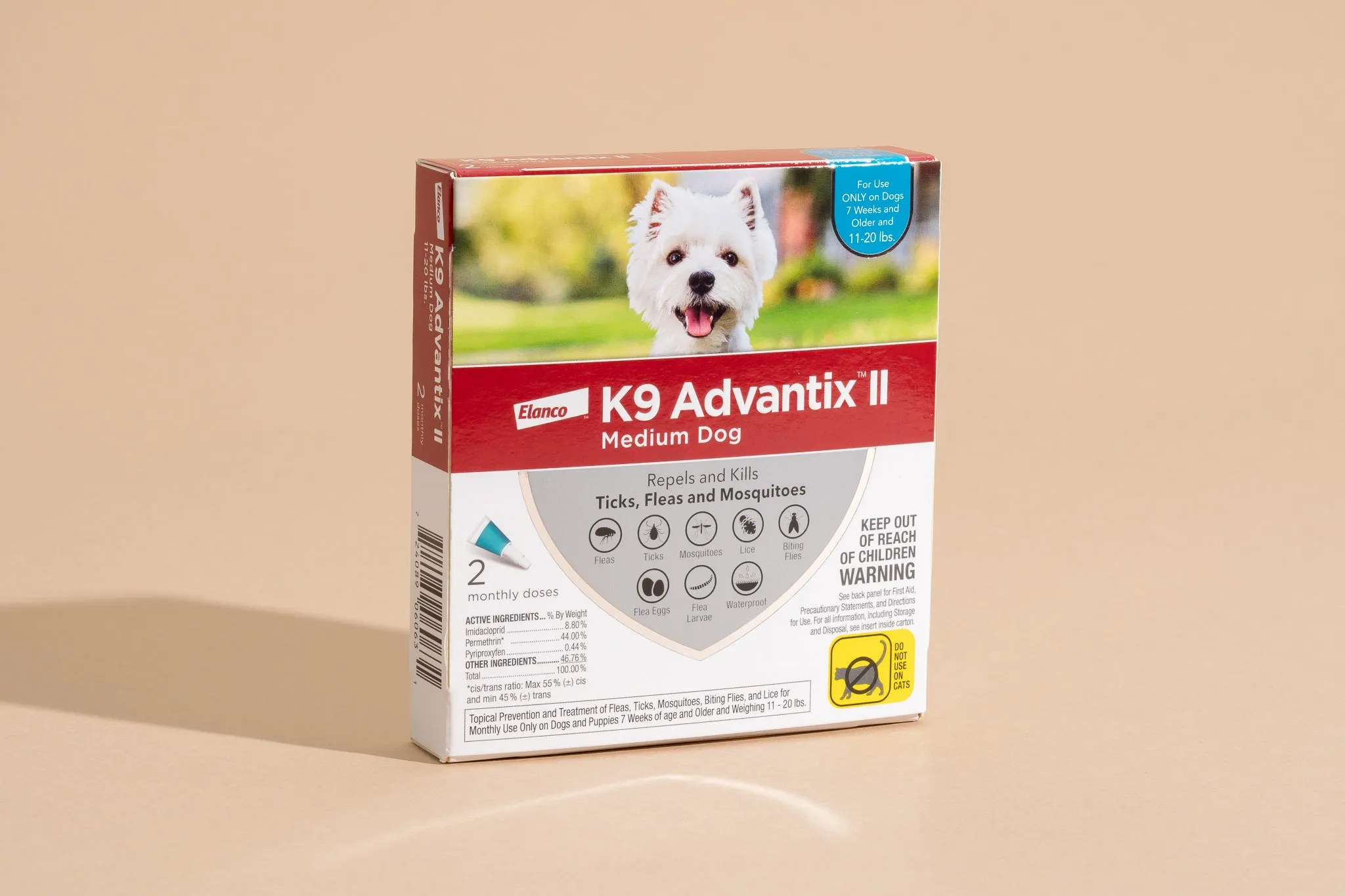 A box of K9 Advantix II Flea and Tick Spot Treatment for Dogs.
A box of K9 Advantix II Flea and Tick Spot Treatment for Dogs.
If you prefer a topical treatment, the K9 Advantix II Flea and Tick Spot Treatment for Dogs is a cost-effective option. This monthly over-the-counter treatment kills and repels fleas, ticks, lice, biting flies, and mosquitoes.
K9 Advantix II contains imidacloprid and permethrin, which are effective in controlling fleas and repelling other pests. This treatment stays on the surface of the skin and hair coat and doesn’t enter the dog’s bloodstream. Therefore, it won’t prevent heartworm or treat intestinal parasites, so you’ll need a separate medication for those.
It’s important to note that Advantix II contains permethrin, which is toxic to cats. If you have both dogs and cats, keep them separated for 24 hours after applying the treatment. Advantix II comes in a tube with a seal and is available in four dosages based on your dog’s weight.
Kills or repels:
- Fleas
- Black-legged tick (deer tick)
- Brown dog tick
- American dog tick
- Lone star tick
- Mosquitos
- Biting flies
- Lice
Price per year: about $155
Choosing the best flea medicine for your cats and dogs involves considering several factors, including their specific needs, lifestyle, and potential risks. By understanding the different types of treatments available and consulting with your veterinarian, you can make an informed decision and keep your pets healthy and pest-free.
